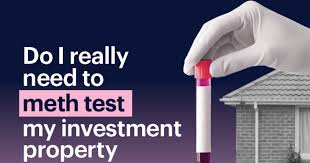What to Do If You Think Your Rental Property Has Drug Contamination
If you suspect your rental property has a history of drug use—or worse, was once a clandestine drug lab—it’s vital to act quickly and wisely. Here’s a concise guide based on RTA advice and QLD tenancy legislation.
1. Understand Your Legal Duties Under the RTRA Act
While the Residential Tenancies and Rooming Accommodation Act 2008 (the Act) doesn’t explicitly mention drug contamination, it does require that landlords ensure their properties are fit to live in, in good repair, and meet minimum health and safety standards—from the start of a tenancy and throughout its duration Residential Tenancies Authority+1.
2. Recognise When to Call the Authorities
If you suspect an active drug laboratory is operating in the property, this is a criminal issue—contact the Queensland Police Service immediately on 131 444 or report it online Residential Tenancies Authority+1.
3. Report Suspicions of Past Contamination
If the concern is past drug use or potential contamination, raise your concerns immediately with the tenant (if applicable). The next step can be testing—either via DIY sampling kits or through a professional laboratory Residential Tenancies Authority+1.
4. Testing & Remediation: How It Works
- Testing: Queensland Health’s Forensic and Scientific Services offer accredited DIY sampling kits. You can also engage a commercial testing agency Residential Tenancies AuthorityQueensland Health.
- Public Health Orders (PHOs): If contamination is confirmed, local government authorities may issue a PHO, requiring the property owner to arrange professional assessment and remediation, with all associated costs falling to the owner Residential Tenancies Authority.
- Health Risks: Contaminants from drug labs—such as methylamphetamine residues—can remain long-term in walls, carpets, and ducting, posing health hazards including respiratory issues, skin irritation, and more serious long-term effects Queensland HealthResidential Tenancies Authority.
5. What Happens to the Tenancy?
- Evacuation may be required: If contamination is at unsafe levels, tenants will typically need to vacate the property until clean-up is complete. In severe cases, the property may even be deemed unliveable Residential Tenancies Authority.
- Rent adjustments or temporary housing: You may mutually agree on rent reduction or waivers in writing while the property is unoccupied. If the tenancy ends, both parties can issue appropriate written notices and follow the correct notice periods Residential Tenancies Authority.
- Tenant exit options: If contamination is discovered within the first seven days of tenancy, a tenant may issue a Notice of Intention to Leave (Form 13). If found within the first three months, they can apply to QCAT for early termination Residential Tenancies Authority.
Next Steps for Landlords
- Raise your concerns with the tenant or property manager.
- Proceed with testing—either DIY or professional.
- Comply with any Public Health Orders.
- Manage tenancy impacts, including potential temporary relocation, rent negotiations, or lease termination.
- Work transparently to resolve issues and protect tenant safety—and your investment.
Why This Matters
Drug contamination issues are complex but every landlord’s responsibility. Understanding your duties under the Act helps you act quickly, ensure health and safety, and avoid potential liability—plus maintains trust with tenants.
Got questions about navigating a contamination concern? I can guide you through the process and handle the tough calls—just reach out.

